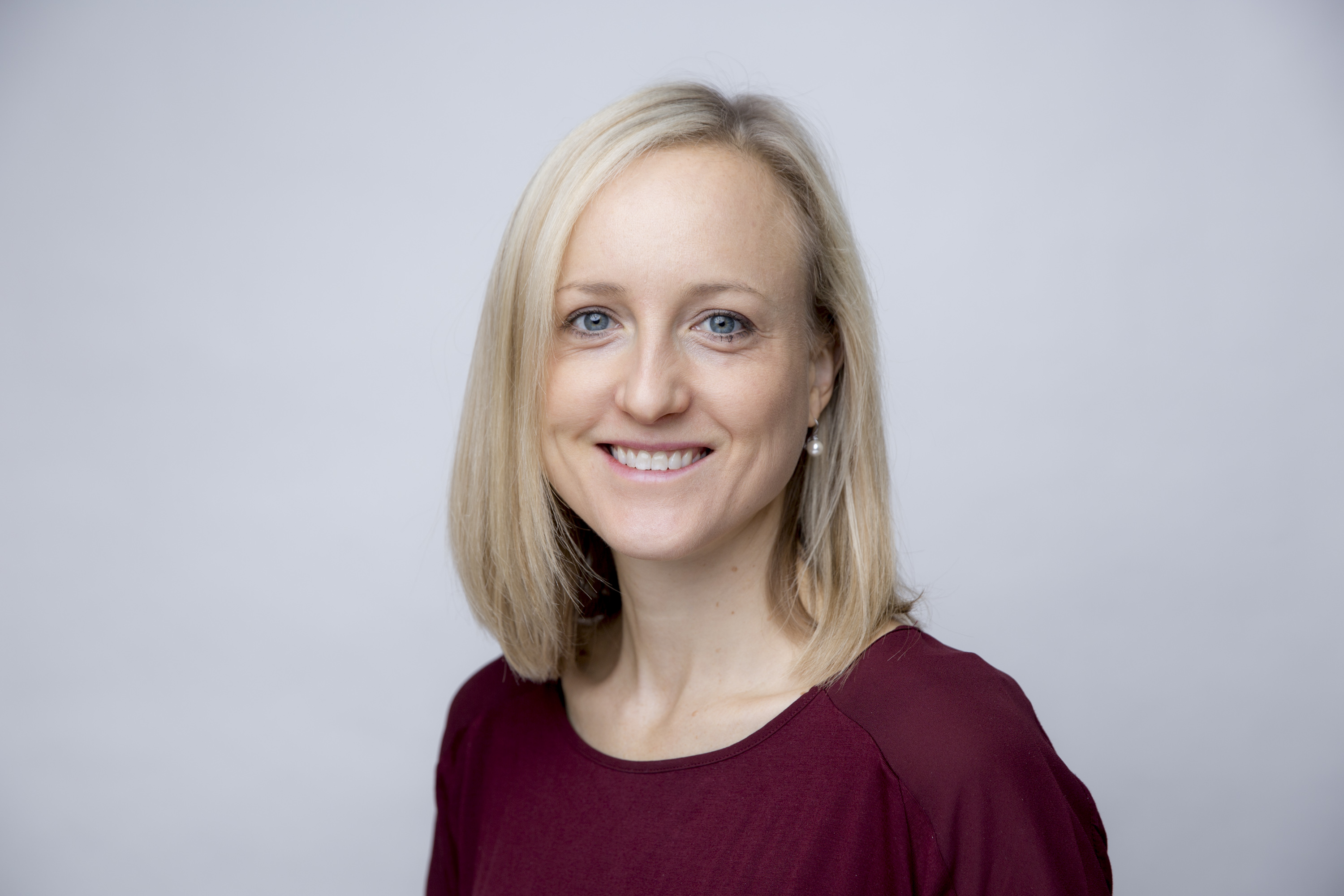Physical therapy alumna Erin McCabe returns to the Faculty of Rehabilitation Medicine as assistant professor on September 1
19 August 2024
 On Sept. 1, 2024, Erin McCabe, a proud alumna of the University of Alberta, will bring her considerable experience — both research and clinical — to her new role as assistant professor in the Department of Physical Therapy. McCabe earned both her PhD and MSc from the Faculty of Rehabilitation Medicine, and her BSc from the Faculty of Science.
On Sept. 1, 2024, Erin McCabe, a proud alumna of the University of Alberta, will bring her considerable experience — both research and clinical — to her new role as assistant professor in the Department of Physical Therapy. McCabe earned both her PhD and MSc from the Faculty of Rehabilitation Medicine, and her BSc from the Faculty of Science.
Her most recent work, supported by a CIHR Health System Impact Fellowship at the University of Calgary, involved co-designing and implementing a patient-oriented measurement framework in child and adolescent mental health. Other research has focused on youth engagement in mental health research and patient-reported outcome measures.
With her return to the Faculty of Rehabilitation Medicine approaching, McCabe spoke to us about what inspired her to pursue postgraduate studies, her desire to help people, her advice for future students and one thing you would never guess she can do.
What first inspired you to enter the field of rehabilitation medicine?
While working as a physiotherapist in the public health system, I was continually frustrated by the lack of access to rehabilitation services for individuals, especially those with more complex needs.
Can you explain your area of research?
Access to high-quality rehabilitation is so important to people, but the health system doesn’t currently have the mechanisms in place to generate evidence of the effectiveness of many of our rehabilitation programs. This makes it difficult to demonstrate the value of rehabilitation to policy-makers to justify funding our services.
My research focuses on patient-reported outcome measures and how to implement those measures into the health-care system. Patient-reported outcome measures can be used at the individual patient level to inform treatment planning and monitor treatment progress. These measures also provide data from the patient’s perspective that can be used to evaluate services and drive evidence-based decisions and policies that will support access to rehabilitation for people who need it.
I’m also interested in measurement theory and equity in health measurement, both of which are important in rehabilitation because the people we work with often fall outside of the “average person” that most measurement tools are geared towards. So our clients or their family members are often asked to answer standardized questionnaires that aren’t appropriate for their needs or do not adequately capture their function. This can be distressing for the client and also produces inaccurate data about their outcomes from rehabilitation programs. I would like to study innovative health measurement approaches that make health measurement more equitable.
Why did you choose this research topic?
My PhD, which I did here at the U of A in the Faculty of Rehabilitation Medicine, focused on measurement theory and developing a patient-reported outcome measure. Through that work, I became interested in how health, well-being and related constructs are measured in the “real world”. I sought out a postdoctoral fellowship where I could apply the measurement knowledge and skills that I learned during my PhD to a real-world problem: How do we implement these measures into the health system?
How do you hope your research will benefit people?
I hope that my research will ultimately improve access to rehabilitation by improving the way we measure outcomes in the health system. If we can produce better data from rehabilitation programs, decision-makers will have accurate evidence demonstrating its value and can make policies that support access to rehabilitation.
What are you most excited about in your new role?
I’m excited to have the chance to be back in the Faculty of Rehabilitation Medicine. It is such a caring group of researchers, instructors, administrators and students who are passionate about the field of rehabilitation.
My postdoc was in child and adolescent mental health, where I had the chance to work with incredible researchers, managers and health-care professionals. However, I love the culture of rehabilitation — that we focus on function and the whole individual. I think that’s quite unique. I’m looking forward to being back in the faculty.
What’s the No. 1 piece of advice you give your students?
I encourage my students to practice self-reflection. It’s such a powerful way to ensure you’re making a positive impact with your work, whether that’s research, teaching or clinical practice, and through your relationships with clients, colleagues and friends.
Can you tell us something others would be surprised to learn about you?
I think people might be surprised to learn that I can walk on my hands.